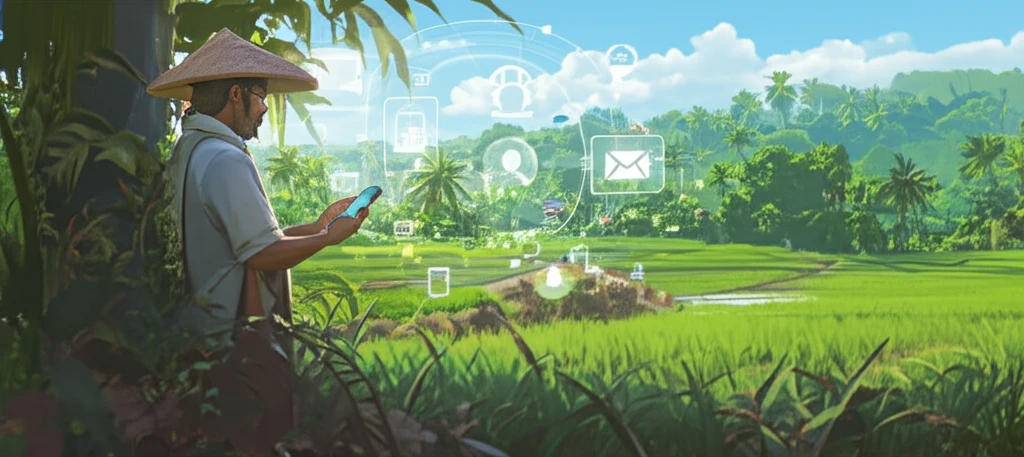
Farming Smarter: How Sri Lankan Farmers Can Master Modern Agriculture
"Unlock the secrets to thriving in today's agriculture: A practical guide for Sri Lankan cucurbit farmers to access knowledge, overcome challenges, and boost yields."
In the heart of Sri Lanka, a quiet revolution is taking place. Farmers, the backbone of the nation, are adapting to the demands of modern agriculture, seeking new ways to boost their yields and access global markets. This transformation isn't just about planting seeds; it's about cultivating knowledge and embracing innovation.
For Sri Lankan cucurbit farmers, the journey to success hinges on accessing the right agricultural knowledge at the right time. This knowledge is the compass that guides them through the complexities of export markets, Good Agricultural Practices (GAP) standards, and the ever-evolving demands of the industry.
This article explores how these farmers interact with agricultural knowledge resources, the barriers they face, and the strategies they employ to thrive in a competitive landscape. Drawing from recent research, we'll uncover practical insights that empower farmers to make informed decisions and cultivate a brighter future.
Decoding the Knowledge Landscape: Where Farmers Turn for Answers

Sri Lankan farmers tap into a diverse network of information sources, each offering unique benefits. These sources can be broadly categorized as formal (government extension workers) and informal (family members, fellow farmers), with a further distinction between digital and non-digital channels.
- Formal Channels: CAB officers and Agricultural Instructors (Als) offer structured, government-backed advice.
- Informal Networks: Family traditions and knowledge sharing with other farmers play a significant role.
- Digital Resources: Online platforms and social media are increasingly used for information gathering.
- Blending Approaches: Successful farmers often combine traditional knowledge with modern techniques learned from various sources.
Cultivating a Knowledge-Rich Future: Recommendations for Success
To empower Sri Lankan farmers and foster a thriving agricultural sector, it's crucial to strengthen the flow of information and bridge the gap between knowledge and practice. Encouraging two-way communication channels between government extension services and farmers is paramount. While extension workers are highly respected, farmers need a platform to voice their challenges and provide feedback on the practicality of recommended practices. By incorporating farmer feedback and acknowledging the diversity of information sources, policymakers can create more effective policies and support the growth of agricultural exports. Embracing digital tools and online platforms is also essential. Putting more government agricultural information online in easily accessible formats and popularizing these sites will empower farmers to access the knowledge they need to thrive.
